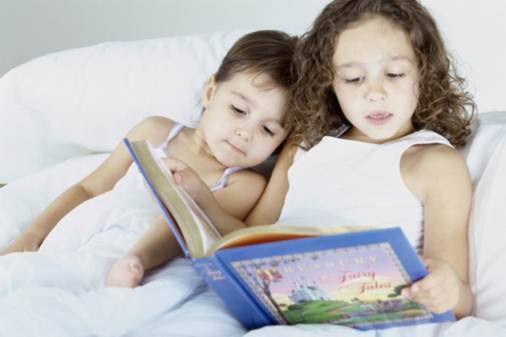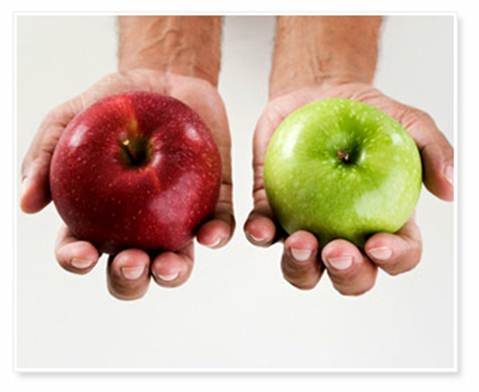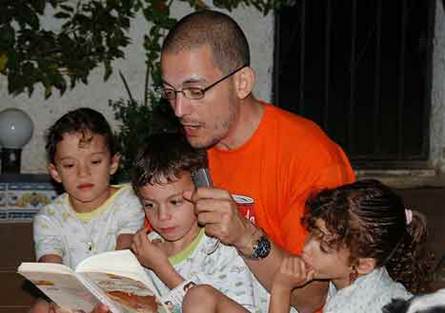How to identify feeling of jealousy between siblings?
Some peculiar behaviours are indicative of the jealously
children feel towards their sibling or other children.

How to identify
feeling of jealousy between siblings?
- They are unable to tolerate that parents are praising
other children, including their sibling. They may throw a tantrum in such
a case or may sulk saying that parents do not love them.
- The child goes out of the way to point out the mistakes or
negative points of those s/he feels jealous of. At times, they could be
fabricated stories.
- Child is unable to tolerate losing at games. S/he may
either leave the game midway or disrupt the game by throwing away things.
- Such children leave no chance to show that they are better
than others. For it, they may go beyond their usual capacity to please
parents and display their superiority.
- They may either behave extra-good or exceesively
mis-chievous – the sole aim is to get attention.
- They may secretly or, at times, even openly display
hostile/destructive behaviour towards the other child by pinching,
hitting, hiding some important thing, tearing books pr pages of the books
or playing foul to cause some kind of harm to the other child. This may be
discovered after some time and is a strong indicator of a deep-seated
disturbance in the child’s emotional state.
- At times, they wiothdraw and may minimise interacion with
others. Feelings of sadness and jealousy may lead to depression. They may
also become indiffierent to the other child and stop caring for her.
- Sometimes older children start behaving in a childish
manner by sucking their thumbs, clinging to mothers and talking in a
babble. This is done to attract special attention.
- At times, children come down with physical symptoms like –
bed wetting, recurrent fever or vague pains, which may not be easy to
explain or diagnose. They do not do this intentionally. It is a
psychosomatic reaction to the stress they are experiencing inside but are
unable to voice.
How do parents deal with jealousy?
One cannot deal with jealousy; we have to deal with the
child. Another important thing to remember is – punishments do not work, they
only worsen the disturbance of the child and increase aggessiveness. Approach
the situation thinking of it as a fresh opportunity to re-bond with the child.
Here’s how you can help her cope with her feelings and teach adaptive methods.
1. Avoid
comparison. Each individual is unique. Understand the child’s
individuality, his/her strengths and weaknesses. Relate to child as an
individual rather than someone better or worse than others. Comparison between
siblings or peers creates more negativity than motivation.

Avoid comparison
2. Show your
love. Express your love for the first child even after the arrival of the
younger one. It is important to continue hugging, kissing and praising the
child even though it may need a little extra effort. This will pay great
dividends later.

Show your love
3. Take the
child in. Involve the child in taking care of the younger sibling. Let her
feel important and a part of the ‘elders’ that are responsible for the
wellbeing of the little one. This automatically makes older children feel good
and generates care and affection within.
4. Teach ways to
care. Show the child how to be gentle with the baby rather than keeping her
away. Supervise and monitor her while she handles the younger one. Trusting
older children with the younger one early, teaches them to be responsible.

Teach ways to care
If you find them doing something to the younger ones that
you don’t like, make it a point to understand what they were trying to do
rather than shouting in panic. Often children have a good reason for their
actions, only they may not know how to go about them right way. It pays to
teach them correct ways of expressing care and concern.
5. Appreciate.
It helps to praise their responsible behaviour. This boosts their sense of self
and reduces the competition that they perceive from the other child.
6. Attend
equally. Children in the house should be as far as possible given equal
time and attention. If a child is too young or sick, you might tend to attend
to her needs more and expect the older child to understand. If it is
communicated well instead of taking it for granted, the other sibling feels
responsible and helps in management rather than creating a problem.